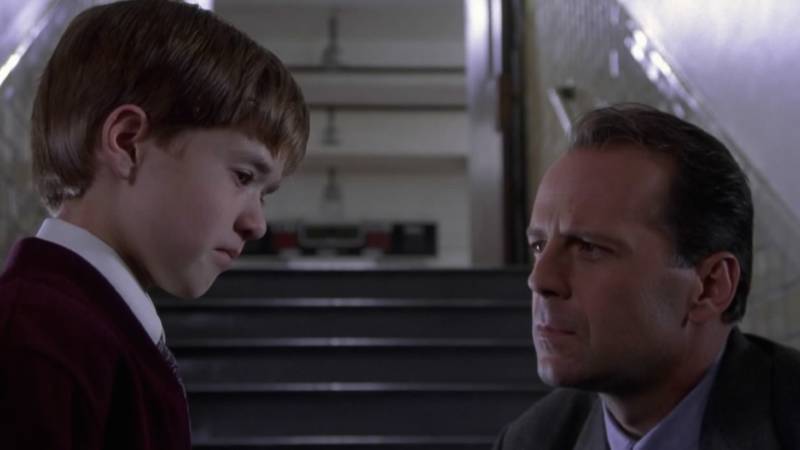Twenty years ago this week, a strange little movie about a strange little boy hit movie theaters and promptly exploded in a way that no one could have predicted. Despite The Sixth Sense‘s inherently dark subject matter—child is tortured by ghosts; recently traumatized psychologist tries to help—its appeal proved oddly universal, sitting at the top of the box office for five weeks, grossing $672.8 million in the U.S. alone.
Some of the reasons for the movie’s mass appeal were obvious. The jawdropping twist ending was water-cooler fodder for weeks after the movie’s release; Bruce Willis and Haley Joel Osment’s performances were both so authentic, their roles as Dr. Malcolm and Cole Sear became iconic overnight; and the grief-related side-plots (Cole’s mom and Dr. Malcolm’s wife both suffer from recent losses) brought a heart and soul to the proceedings that horror movies sometimes lack. The marks The Sixth Sense left on pop culture weren’t just immediate, they’ve since proved impossible to erase.
Against all the odds—and despite the endless spoofs it’s spawned over the last two decades—watching The Sixth Sense today is just as affecting as it was in 1999. That timelessness is thanks in part to its universal themes around life and death, but ultimately the movie’s enduring watchability has far more to do with what Cole’s character really represents.
In the movie, Cole is a nine-year-old medium, isolated and bullied by peers because of a general inability to fit in. Cole isn’t picked on because other kids know he’s psychic, he’s picked on simply for being perceptibly different—a predicament painfully familiar to anyone who has suffered through a similarly miserable adolescence. Even when Cole tries his best—as when he recreates a magic trick shown to him by Dr. Malcolm for another child at a birthday party—he is out of step, through no fault of his own.


